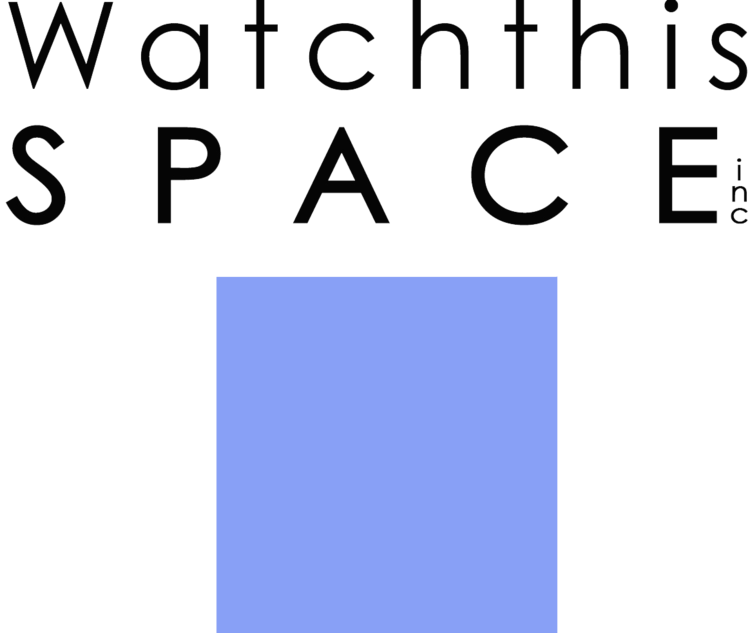Cultural Work Across Fracking Frontlines
Rachel O’Reilly, Que Kenny & Roxanne Highfold
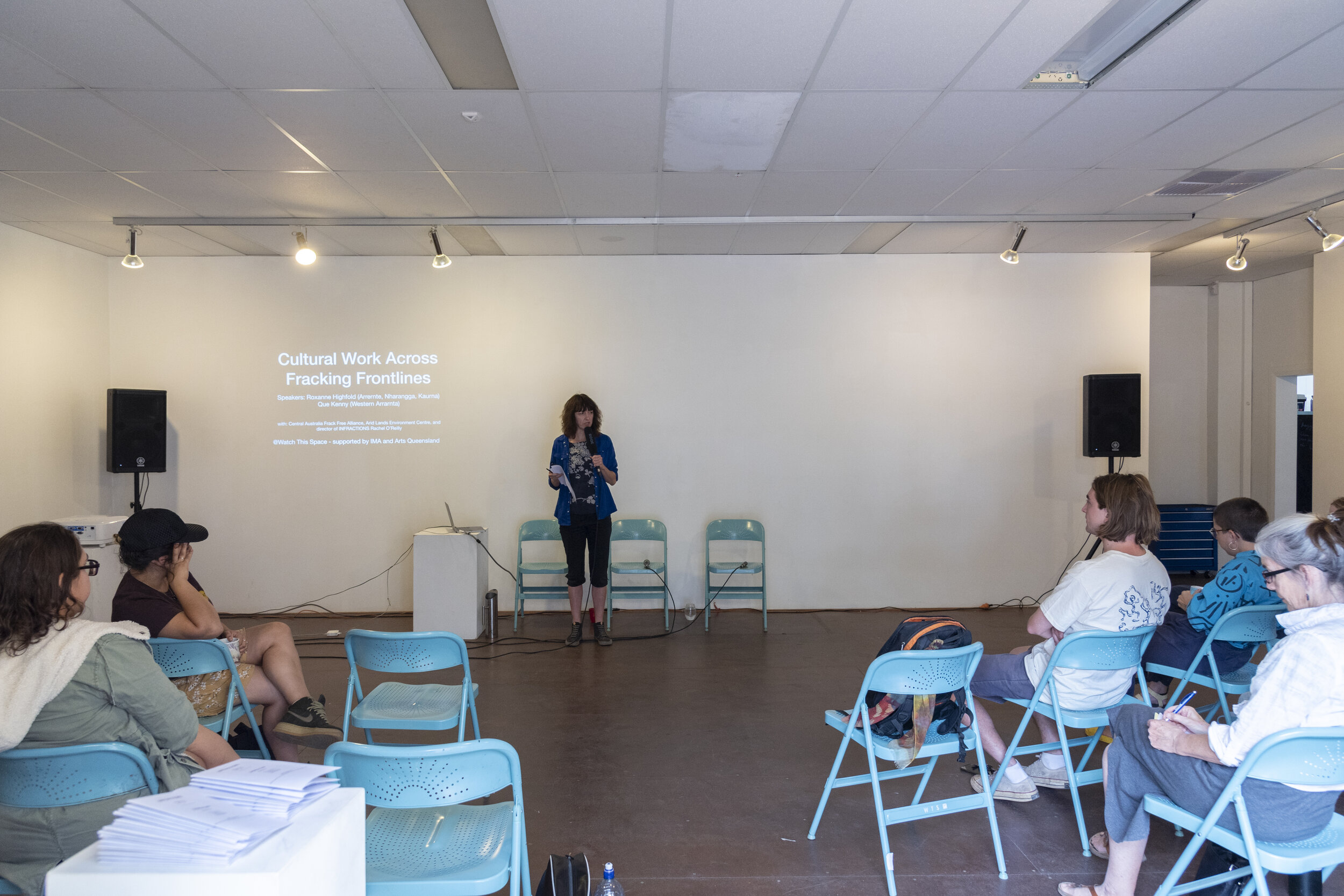
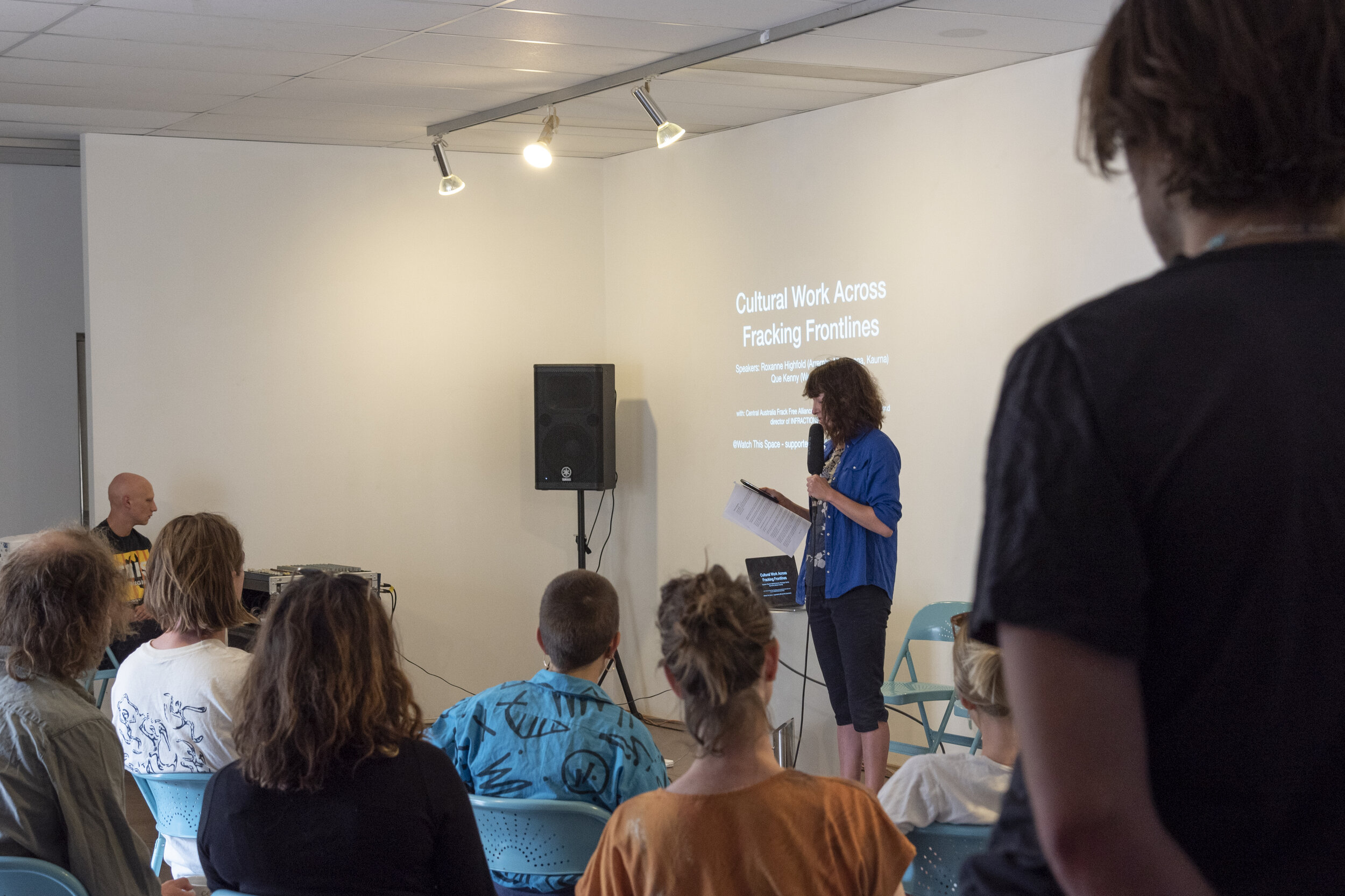
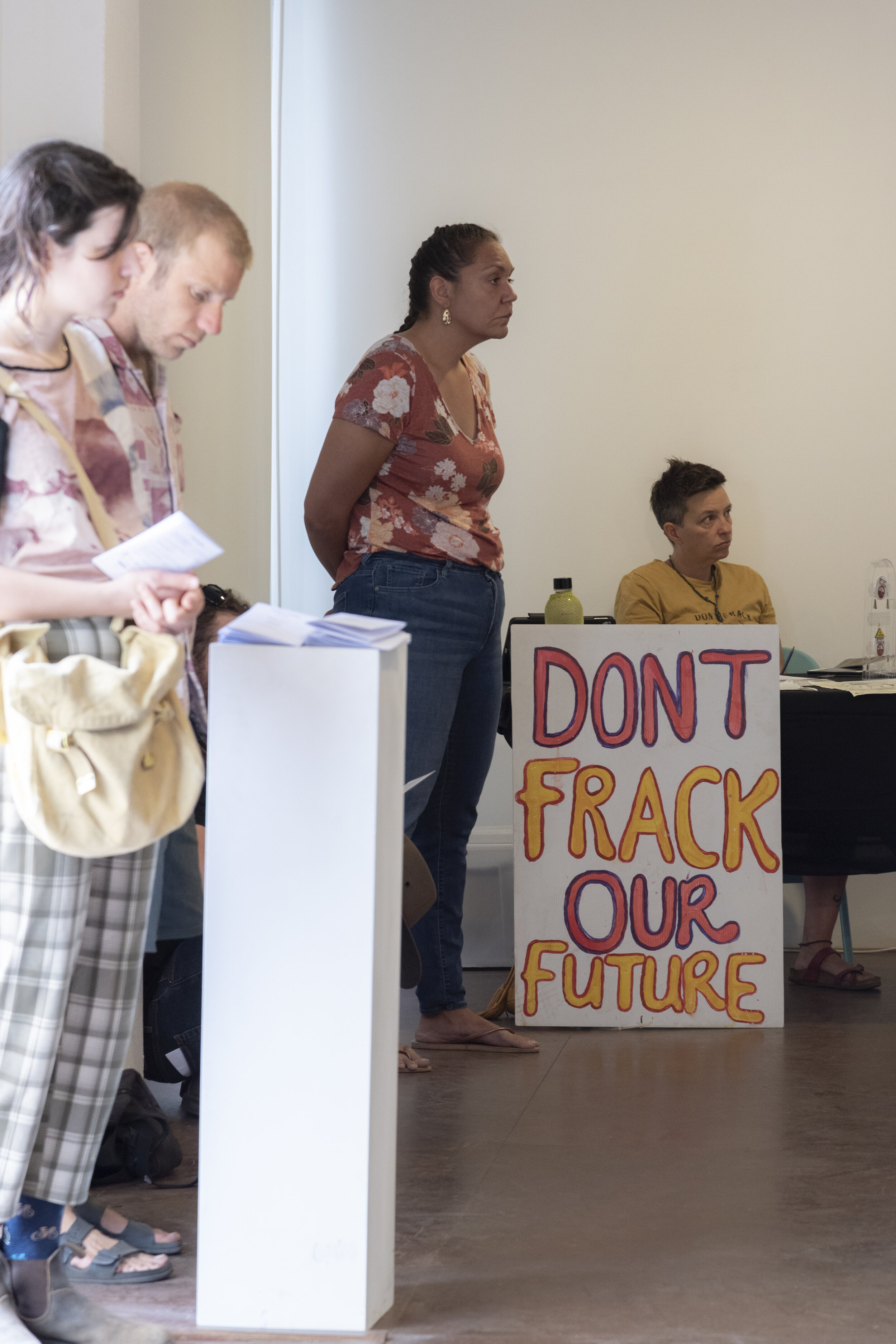
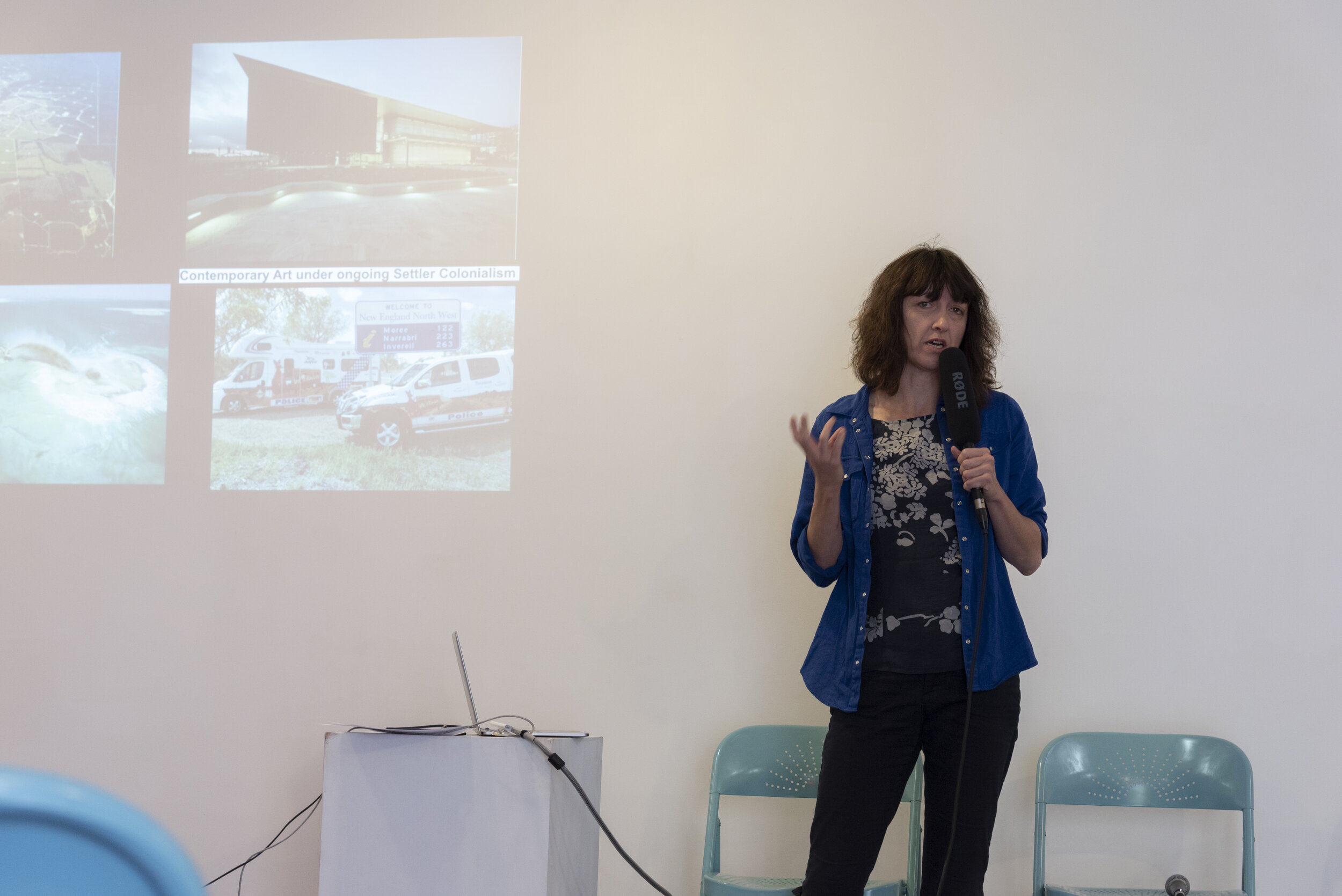
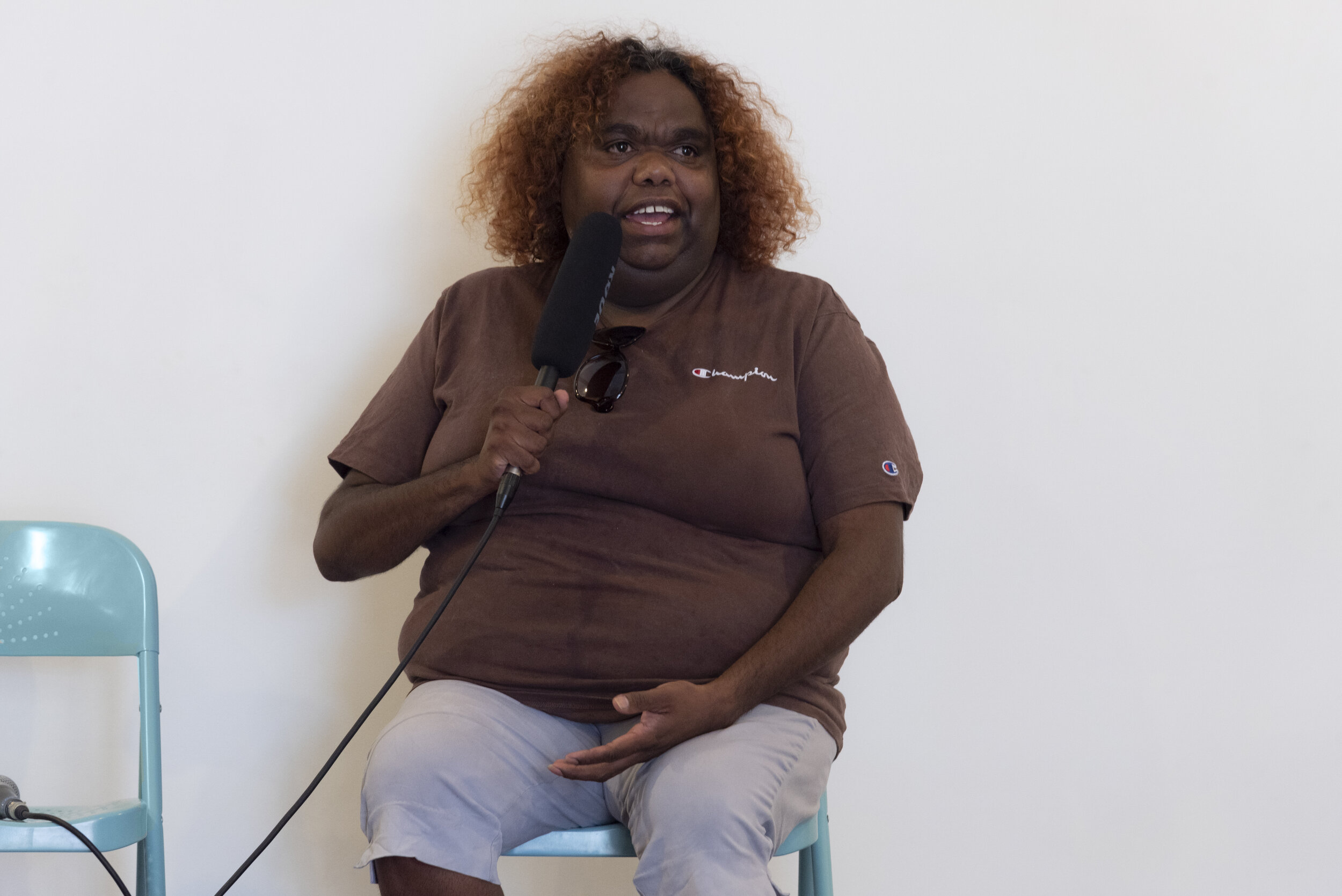
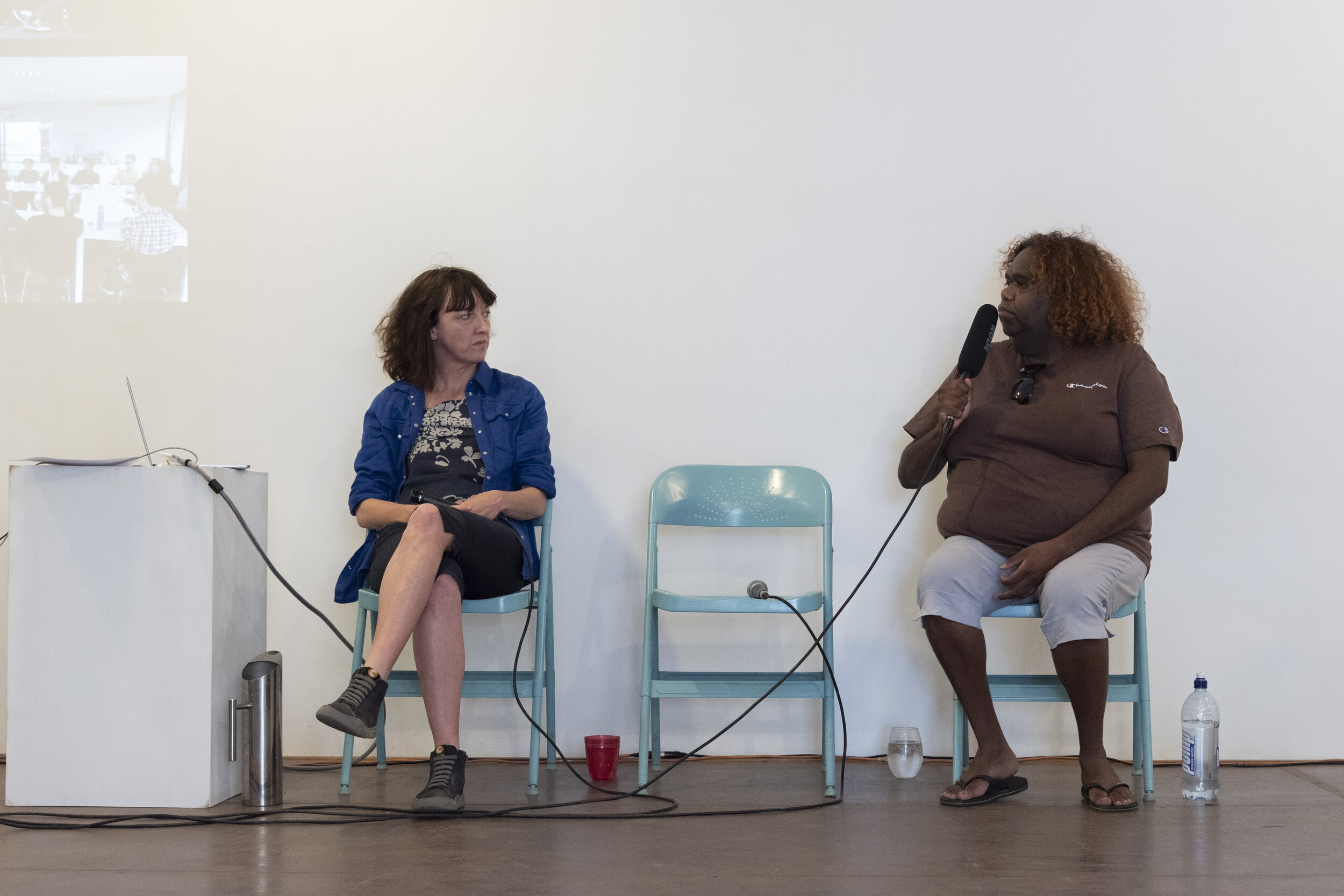
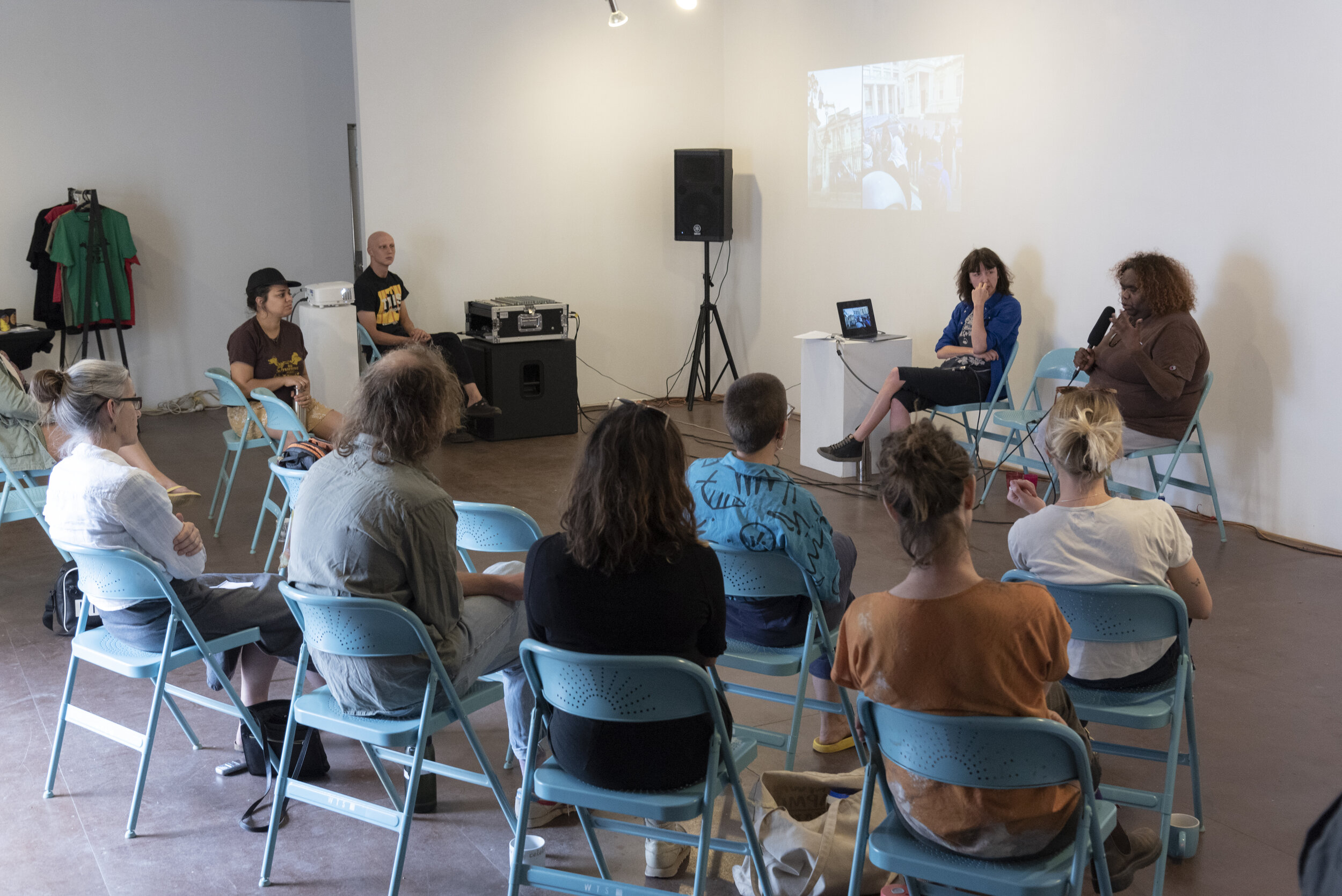
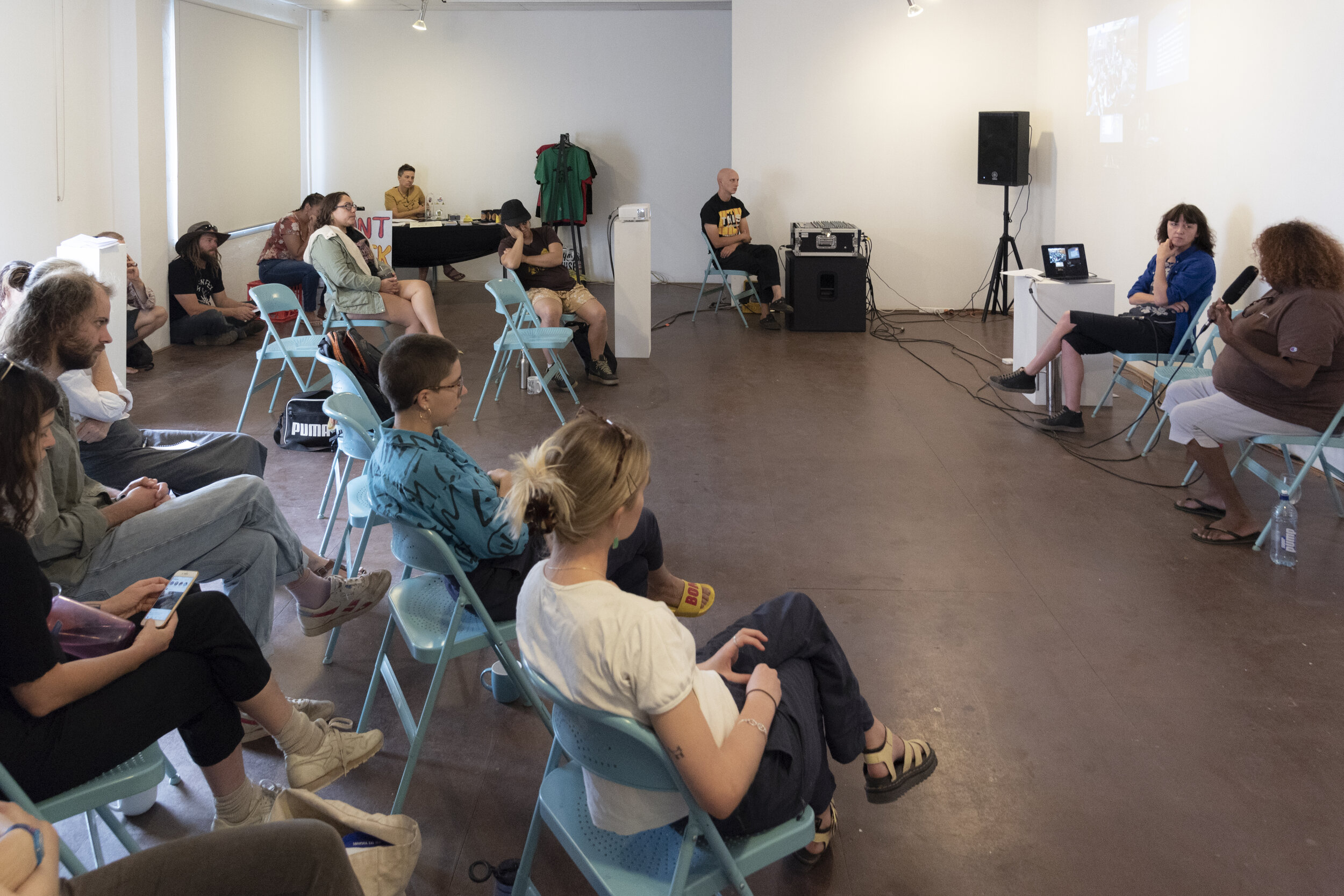
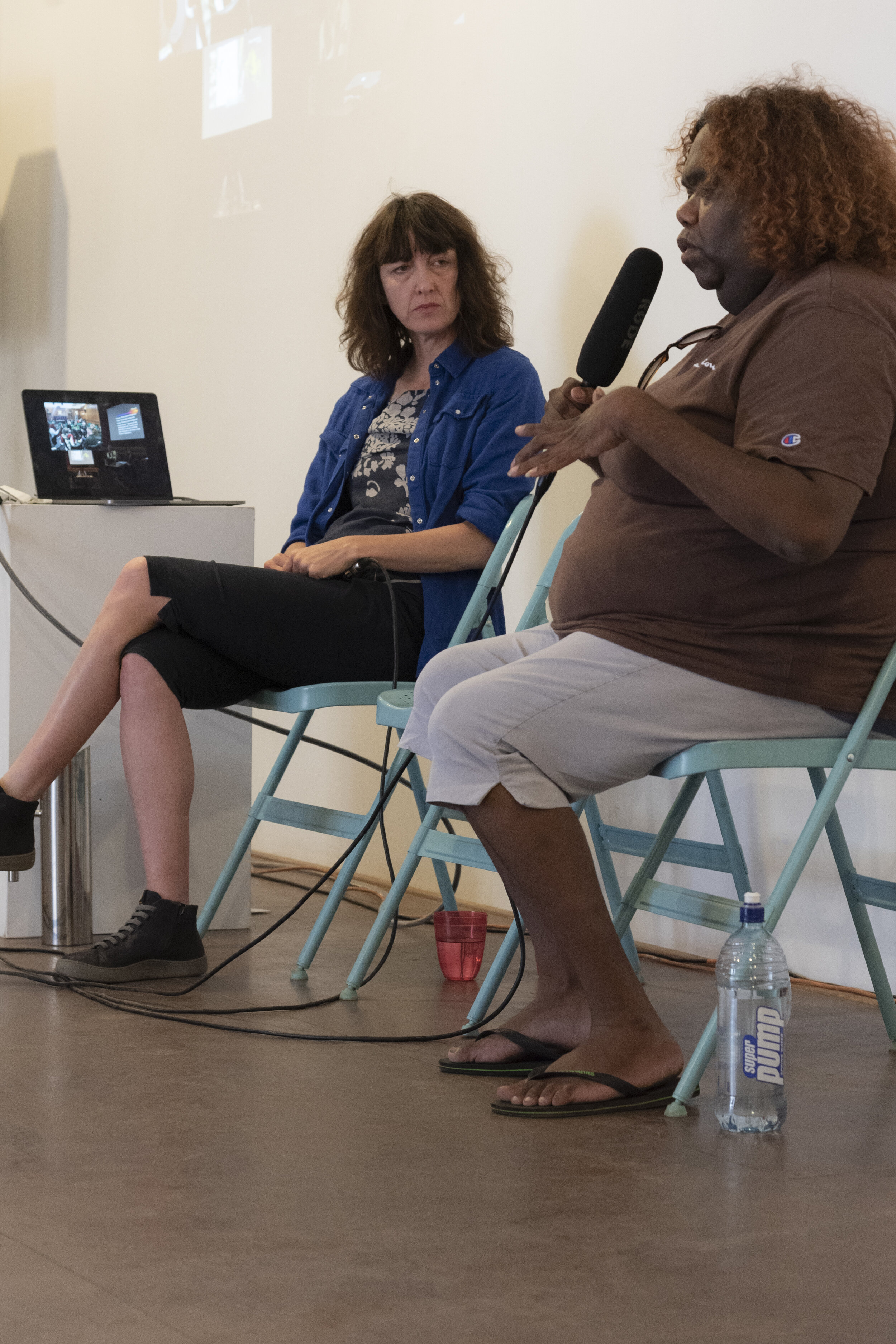
Why follow a border-crossing industry as it makes its way across Countries, and how do we refuse mining companies’ cultural work?
INFRACTIONS was made in the wake of the NT Scientific Inquiry into fracking and connects the Queensland and NT stories of approvals. Drilling and legal activism has commenced in the Beetaloo Basin following a brief period of rest and healing during the early days of the pandemic lockdown, while the Federal Government has since doubled down on planet-warming gas projects as a poor solution to pandemic economics. This panel will go beyond the making of the film and its return to the Central Desert in ways that continue storytelling around self-determination, water and climate matters.
INFRACTIONS is a travelling exhibition organised by the Institute of Modern Art. This project is supported by the Queensland Government through Arts Queensland.
BIO
Que Kenny (Western Arrarnta) is a community support worker, artist and activist from Ntaria (Hermannsburg), west of Alice Springs in the Northern Territory, also studying law at Deakin University, Melbourne. She has been involved in grassroots campaigns against the Northern Territory Emergency Response (‘The Intervention’) since 2007, and against Northern Territory gas fracking with the Protect Country Alliance. She has contributed to numerous fictional and environmental films and community projects, and accompanied INFRACTIONS to the Berlin and London launch.
Roxanne Highfold is an Arrernte/Nharangga/Kaurna woman with ties to Central and Eastern Arrernte nations through her mother's side and ties to the York and Eyre peninsula through her father's side. Roxanne grew up surrounded by her community and has spent many years on Country advocating for self-determinants and self-sufficiency for First Nations. Her particular passion is decolonisation, health and environmental awareness and justice. She hopes to see a future where Aboriginal people can lead the way on environmental issues, be more self-sufficient/self-governed on Country and in turn be able to strengthen their mind, heart, body, spirit and connection to Country.
PANEL DISCUSSION
7 November, 11am
Left: Map connecting Mataranka thermal springs to NT groundwater flows.
Right: National map of prospective gas permits, as of Oct, 2019.
Yellow = Approved.
Green = Under application.
A review conducted by UTS Jumbunna Indigenous House of Learning found most - if not all - permits in the NT were issued in the absence of free, prior and informed consent.
